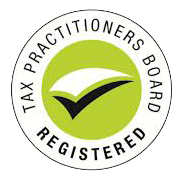Self-Care Tips for Dealing with a Partner’s Addiction
by Kathie Baker CEO Release My Super 1300 941 037 | 0475 471 872
Release My Super specialises in the release of superannuation under the compassionate release of super program for drug and alcohol rehab, mental health treatment, gambling addiction, and IVF.
Having a partner with an addiction can be incredibly challenging and can take a toll on your mental health and well-being. It’s important to remember that taking care of yourself is just as important as supporting your partner through their struggles. Here are some self-care tips to help you cope:
1. Establish Boundaries
It’s important to set boundaries when dealing with a partner’s addiction. This means being clear about what you will and will not tolerate.
The establishment of boundaries may include setting limits on how much you are willing to help them or making it clear that you won’t cover up their addiction for them.
2. Seek Support
Dealing with a partner’s addiction can feel isolating, but it’s important to know that you’re not alone. Seek out support from friends, family, or a therapist. You can also join a support group specifically for partners of individuals with addiction.
3. Focus on Your Self-Care Routine
Make self-care a priority in your life. This means making time for yourself, practising relaxation techniques, and engaging in activities that bring you joy. Some examples include meditating, getting a massage, or simply going for a walk or a hike – fresh air and you time!
4. Avoid Codependency
Codependency occurs when you focus all of your energy on your partner’s addiction, to the point where you neglect your own needs. Remember that you can’t control your partner’s addiction and you’re not responsible for their behaviour. It’s okay to take a step back and focus on yourself.
5. Avoid Enabling Behaviours
Enabling behaviours can include anything that allows your partner to continue their addiction, whether it’s covering up for them or giving them money. It’s important to stop enabling their behaviour and to encourage them to seek help.
6. Take Care of Your Body
Physical self-care is just as important as mental self-care. Make sure you’re eating a healthy diet, getting enough sleep, and engaging in regular exercise.
7. Seek Professional Help
If you’re struggling to cope with your partner’s addiction, don’t be afraid to seek professional help. A therapist can provide you with the tools you need to cope with your situation and can help you develop a self-care plan.
Dealing with a partner’s addiction can be overwhelming, but remember that your own health and well-being is important too. By practicing self-care and seeking support, you can navigate this challenging situation and come out stronger on the other side.
Release My Super
The financial burden of major life health events can be overwhelming, whether it is caused by addiction or mental health, and the money a family member needs (or you) for treatment may be available to you through the early release of superannuation.

Best wishes, Kathie Baker
Author: Kathie Baker, CEO Release My Super 1300 941 037 | 0475 471 872




